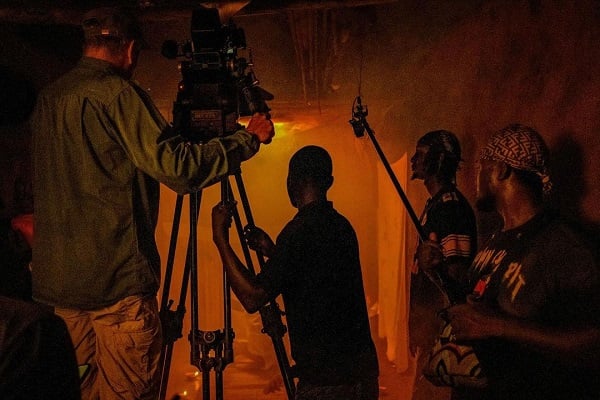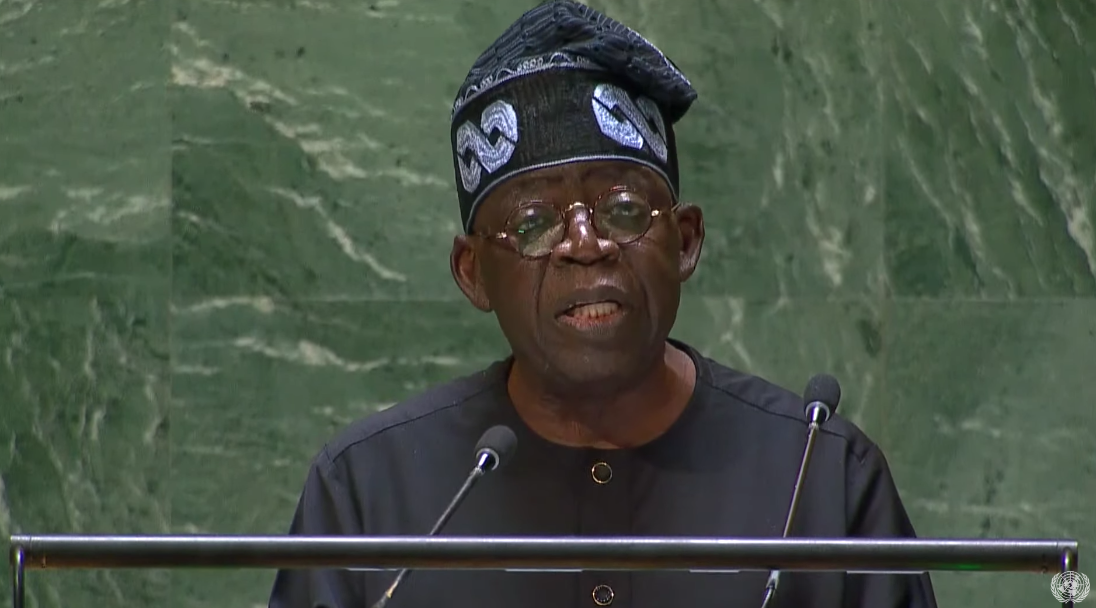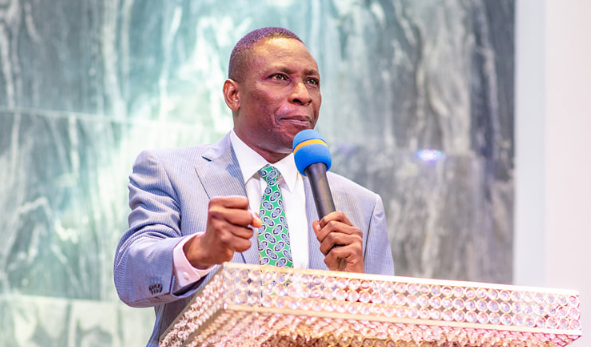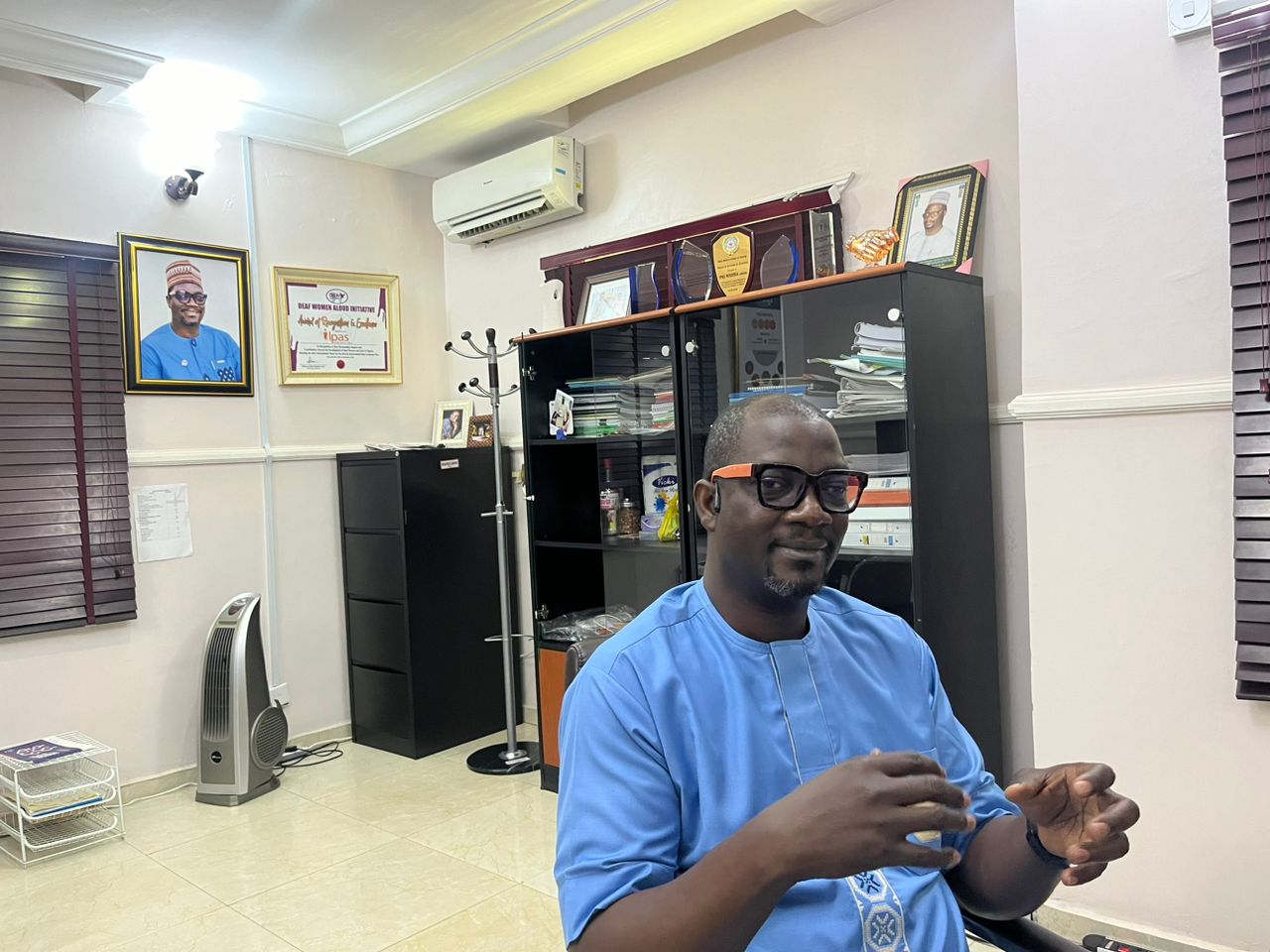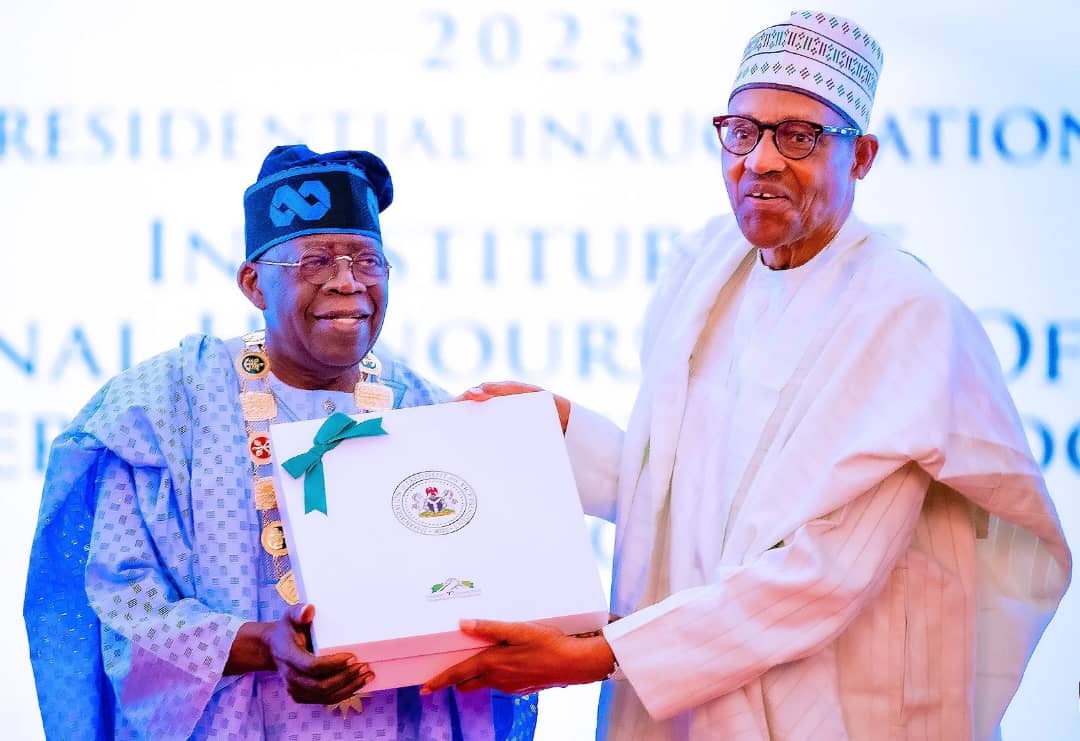Piracy still feeds fat off Nigeria’s film, pay TV subsectors after two decades
Uche Ikejimba pulled more than one all-nighter in several months of back-breaking work to see her series ‘Dilemma’ through development. She undertook mind-bending boardroom pitching sessions to source funds for the project, later initiated shooting, got through post-production, and finally premiered the romance drama.
Barely a day after its first episode hit the pay-TV channel Africa Magic in 2021, word came that the TV series was already airing to the public via an unlicensed pirate page on the messaging app Telegram.
Situations like this, filmmakers have lamented, are an investment threat that could plunge a producer into trouble with funders or actors, with losses to bear and a mountain of debt to offset.
Ikejimba’s work wouldn’t be the first whose revenue would come under the threat of film piracy. Piracy is a global problem pillaging through creative industries, albeit, at differing intensities. Nigeria’s movie and TV sub-sectors have especially had it tough over the last two decades. The illegal distribution of films and TV shows both in digital and physical copies without licence from the creators or owners continues to threaten producers who struggle to recoup their investments and pay creatives hired on the project.
Advertisement
The earliest of such cases in Nigeria’s film industry was Moses Olaiya’s 1982 comedy film ‘Orun Mooru’ which was bootlegged during its theatrical run after the film’s master celluloid tape was stolen. Several cinemas in the country reportedly screened the project without a licence. The revenue never got to its now-deceased producer whose career, reputation, and finances would suffer a devastating blow.
Nigeria’s organised film industry emerged in the ’90s, producing direct-to-video titles that gained fame in African countries and with Nigerians in the diaspora. Almost from the outset, Nigeria’s filmmakers were confronted with the challenge of piracy, affecting the economic sustainability of the Nollywood industry.
From the era of VHS tapes to DVD transition in the 2000s, mass-producing bootlegged copies of popular films was easy. Street hawking of pirated DVDs became a common sight. Internet penetration and the advent of streaming by the 2010s brought piracy online and onto illegal digital file-sharing networks.
Advertisement
BACKSTREET MARKETERS AS AGE-LONG ENABLERS
Nigeria makes an average of 2,500 movies yearly; its continental success is largely a function of production volume.
UNESCO, in a 2021 industry survey, found that filmmakers in two-thirds of African countries said they lose up to 50 percent of their expected revenue to piracy. Although there are no clear-cut stats on how much Nollywood loses to this, a 2023 survey sampled filmmakers who believe their projects bleed as much as 40 percent of expected revenue to pirates.
Areas like Alaba market in Lagos, Onitsha in Anambra, Aba in Abia, and Port Harcourt in Rivers state host known film piracy hotspots where bootlegged DVDs are openly sold in stalls. The Journal of Film and Media Arts estimates that unregistered marketers share in the blame for 93.8 percent of Nigeria’s film piracy cases, followed by traders who print illegal copies for the retail stalls at 87.5 percent, unregistered producers at 75 percent, and corrupt anti-piracy agents in Nigeria’s film regulatory body culpable for 52.3 percent.
Advertisement
Film producers in Nollywood often rely on personal savings, seek out grants, leverage private equity, or sometimes take loans from associates to undertake independent projects with the hope of breaking even and profiting when the film premieres or lands a licensing deal. But piracy makes a project less appealing to potential pay-TV investors or streaming firms who would want to purchase rights to the film content.
In the last two decades, media campaigns have been rolled out to educate stakeholders on how intellectual property theft robs film/TV stakeholders of their investments and discourages creativity.
In 2017, the Nigerian Copyright Commission (NCC) carried out 49 strategic anti-piracy operations and 99 surveillance patrols in specific locations nationwide, apprehending 70 suspects and recovering 1,301,649 bootlegged works, including DVDs and CDs collectively valued at ₦1.26 billion. But apart from subsisting allegations of bribery and complicity among these enforcement agents, the regulator is criticised as lacking continuity in its operations. “Pirates have nothing to lose,” argues Victor Okhai, president of the directors guild. “They willingly give a cut of piracy proceeds to corrupt officers.”
Okhai also claims that the NCC as a regulator has failed to pursue most of its cases to a definite conclusion.
Advertisement
In recent years, pirate websites have maintained a chokehold on local filmmakers, uploading popular titles online for download once such movies hit the cinema or debut on streamers. Okhai believes that Nigeria’s regulators and anti-piracy agents are yet to catch on and go digital with their crackdown.
NIGERIA’S PAY-TV ECOSYSTEM NOT SPARED
Advertisement
Beyond cinema, OTT video, and physical CDs, Pay-TV is a major outlet for Nigeria’s movies, particularly family-targeted drama. Multichoice poured over $85 million in local content over the last two decades in Africa, with Nigeria as one of its major markets. Africa Magic, its bundle of entertainment channels, repeatedly commissions, produces, and acquires Nigerian films and TV series in deals with local creators.
The pay-TV company said its investment is under threat from years of piracy that leaves it struggling to recoup its funds and reinvest in the local industry. Pay-TV became a thing in Nigeria in the late 1990s and MultiChoice, through its DSTV subsidiary, was among the first to begin operations within the country.
Advertisement
From the onset, pirates sought to circumvent subscription fees to access and distribute its content by using illegal cable connections, deploying hacked smart cards, and selling counterfeit decoder devices.
Pay-TV operators had adopted technological measures such as encryption and smart card technology but pirates, over the years, continued to evolve by developing and peddling tools to hack these systems.
Advertisement
Charles Amudipe, deputy director of operations at NCC who spearheads some anti-piracy clampdowns for pay-TV service providers, said armed pirates peddle premium pay-TV access for as cheap as ₦500 in remote areas like Warri and Sapele in Delta, with communities in Bayelsa and Rivers states also affected.
This, he said, has spun a crisis that enforcement agents within the NCC and local police can no longer independently contain, creating a massive revenue leakage for stakeholders.
“Anytime our operatives enter into these communities, young people come out to attack us,” the director said. “If we go to Delta, Rivers, or Bayelsa, we have to use army or air force officers. It’s that bad.”
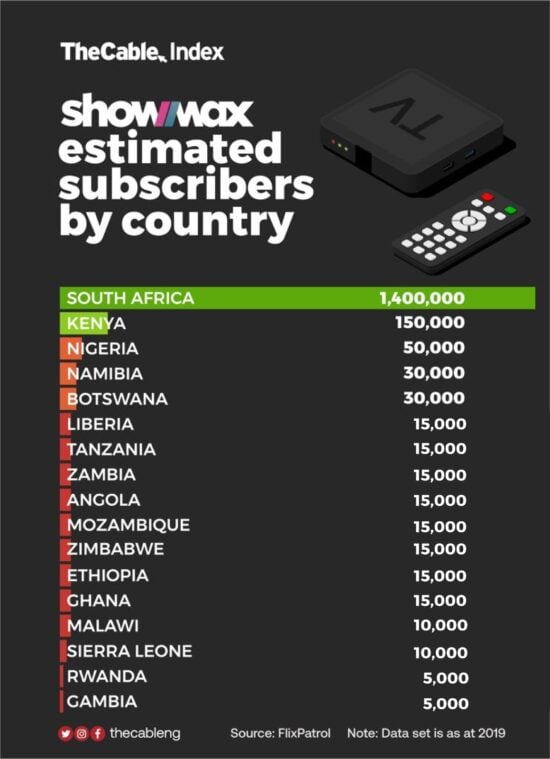
MultiChoice leverages its relationships with a broad network of major production studios to offer local and international shows and films on Showmax — its subscription VOD service — that, in the fourth quarter of 2023, outpaced Netflix’s 35% streaming market share in Africa to hit a 40% lead in subscribers. Data from the aggregator FlixPatrol estimates that Showmax, with 1.8 million total users, unsurprisingly has South Africa as its leading market at 1.4 million subscribers. This is followed by the distant 150,000 in Kenya. Nigeria ranks at a diminutive 50,000 subscribers despite its comparatively large domestic market.
This gap is blamed on Nigeria’s low purchasing power but stakeholders also argue that users may see no need to purchase VOD streaming packages if unpaid access to famed titles is guaranteed on pirate sites.
Evi Odafe-Ejumedia, head of channels at Africa Magic, said MultiChoice has had to pour funding, beyond its deals with producers, into shutting down third parties who try to cede its content without investing. This includes creating an entire cybersecurity subsidiary, Irdeto, to cover the slacks of local regulators.
“As we solve one problem, 20 others are coming,” she said. “We spend a lot producing but sometimes run at a loss. If we can’t pay back to those we’re meant to; if we cannot recoup, how do we re-invest?”
RISING COST OF CONTENT AS INCENTIVE
The high stakes in Nollywood’s increasing global visibility over the last half-decade have seen filmmakers explore new funding models as in Editi Effiong’s ‘Black Book’, churning out originals as in Kunle Afolayan ‘Anikulapo’, and undertake ambitious projects like ‘Madam Koi-Koi’, all of which require better technical capacity, increased production cost, and ultimately higher admission fees if such projects hit the cinema. Between 2019 and 2023, cinema ticket pricing increased from ₦2,500 on average to ₦6,500 per person.
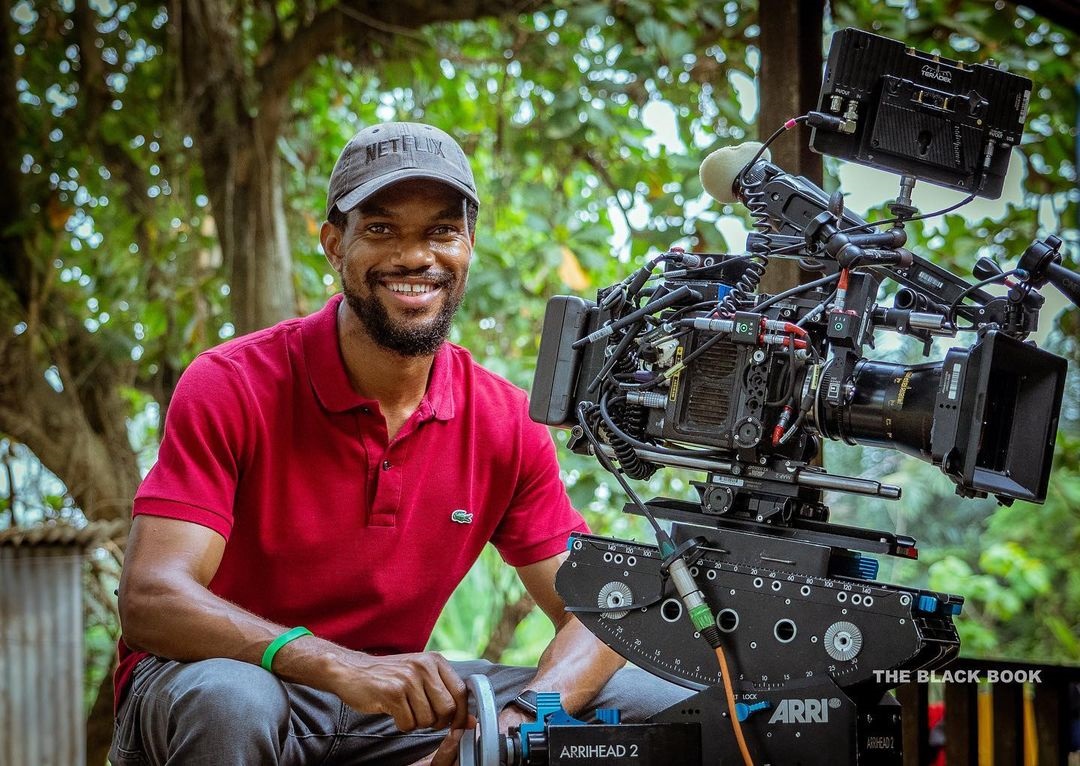
On the pay-TV front, MultiChoice raised subscription rates for the second time in 2023 on its DSTV and GoTV services in November, citing the rising cost of business operations. Its DSTV premium bouquet moved from ₦24,500 to ₦29,500, Compact+ from ₦16,600 to ₦19,800, Compact bouquet to ₦12,500 from ₦10,500. Confam, Yanga, and Padi bouquet subscriptions were upped to ₦7,400, ₦4,200, and ₦2,950 from ₦6,200, ₦3,500 and ₦2,500, respectively. Yet, economic indicators such as Nigeria’s inflation and the exchange rate show no sign of being tamed, raising fears about fresh hikes in pay-TV pricing.
Streamers like Showmax and Netflix are keeping their rates low in Africa as part of their continent-wide tussle to dominate the potentially growing ecosystem, but this has only done so much for local users in Nigeria who increasingly find themselves making spending tradeoffs due to shrinking purchasing power.
All other factors accounted for, content creators, pay-TV stakeholders, and their associated investors are having to spend more on production, technology, content acquisition, marketing, and paying the talents.
Odafe-Ejumedia said Multichoice is heavily impacted by strong economic forces while sunk costs remain unchanging.
“Can rates go down? Cost of doing business is what it is, both for Multichoice and filmmakers,” hedges Busola Tejumola, executive head of content/West Africa channels at Multichoice. “We know what the economy is saying. So, our subscriptions are tiered and we continue to offer value as much as we can.”
However, this apparent demand-affordability dilemma is only a subsisting market gap waiting to be exploited by film and pay-TV pirates. As for the viewers, they would rather access film and TV content at the cheapest rates, even at the risk of pushing indigenous film producers to the brink of bankruptcy.
“Some of those who enable satellite TV piracy especially are not people on the streets. Their money is in the illicit drug trade and human trafficking,” Amudipe added. “They launder and pour it into piracy. They are the people who have the technical resources to hack the signals of broadcasting organisations. They put huge amounts of money into tracking signal-beaming satellites. They create technologies that circumvent the paywalls on what content owners push out. They then make the tech available for the masses to buy.”
A NEVER-ENDING STRUGGLE
The Nigeria Bureau of Statistics (NBS) said the creative economy, including the film and TV subsectors, added only 2.54 percent to the GDP in the second quarter of 2023. The country, in its economic growth roadmap for the next seven years, is banking on the sector to constitute up to 10 percent of annual revenue towards boosting Nigeria’s gross domestic product by $100 million in the year 2030. This, the minister for arts Hannatu Musawa said, is to be achieved through regulatory, legislative, intellectual property, and policy reforms.
Film and TV piracy is a global problem that continues to get sophisticated as digital technology evolves.
In Nigeria’s film industry, digital piracy is doing more of the damage. Film directors, tasked by regulators like the copyright commission, are now curating a list of websites known to have thrived on pirated films from Nollywood post-release. With the Nigerian Copyright Law of 2022 assented to earlier in 2023, the copyright commission said it can now work with the Nigerian Broadcasting Corporation (NBC) and the Nigerian Communications Commission (NCC) to do copyright takedowns and block access to pirate sites.
“Before now, there were no legal provisions and penalties that empowered us to bring down websites involved in this act,” said Amudipe during an anti-piracy fireside chat in Lagos. “We will keep going after these people, whether the piracy is physical or done through the internet.”
Femi Agaba, an intellectual property lawyer, said agencies like the NCC must be effectively funded to clamp down on piracy in all its modalities. He said the judiciary needs continuous training in handling intellectual property matters, which he describes as a specialist area to litigate on. Piracy and copyright matters in Nigeria are known to drag on in court for years when lawsuits are filed. Agaba called for the creation of a special court for IP litigation to expedite prosecution and convictions for related disputes.
To get more out of the government in the never-ending fight against film and TV piracy, the lawyer said stakeholders need a value proposition that translates to tax revenue and data with which to convince state, federal, or public agency authorities. “For Multichoice that works with producers, is there a way to ensure relevant taxes are paid? Beyond culture, we need proof that we’re upping government revenue,” Agaba said.
On his part, Amudipe said film and pay-TV stakeholders must undertake aggressive grassroots anti-piracy campaigns to educate and win over consumers who patronise, unwittingly protect, and are sympathetic to pirates.
But in the end, even for more developed regulatory climes, the anti-piracy tussle remains a never-ending endeavour.
Add a comment

